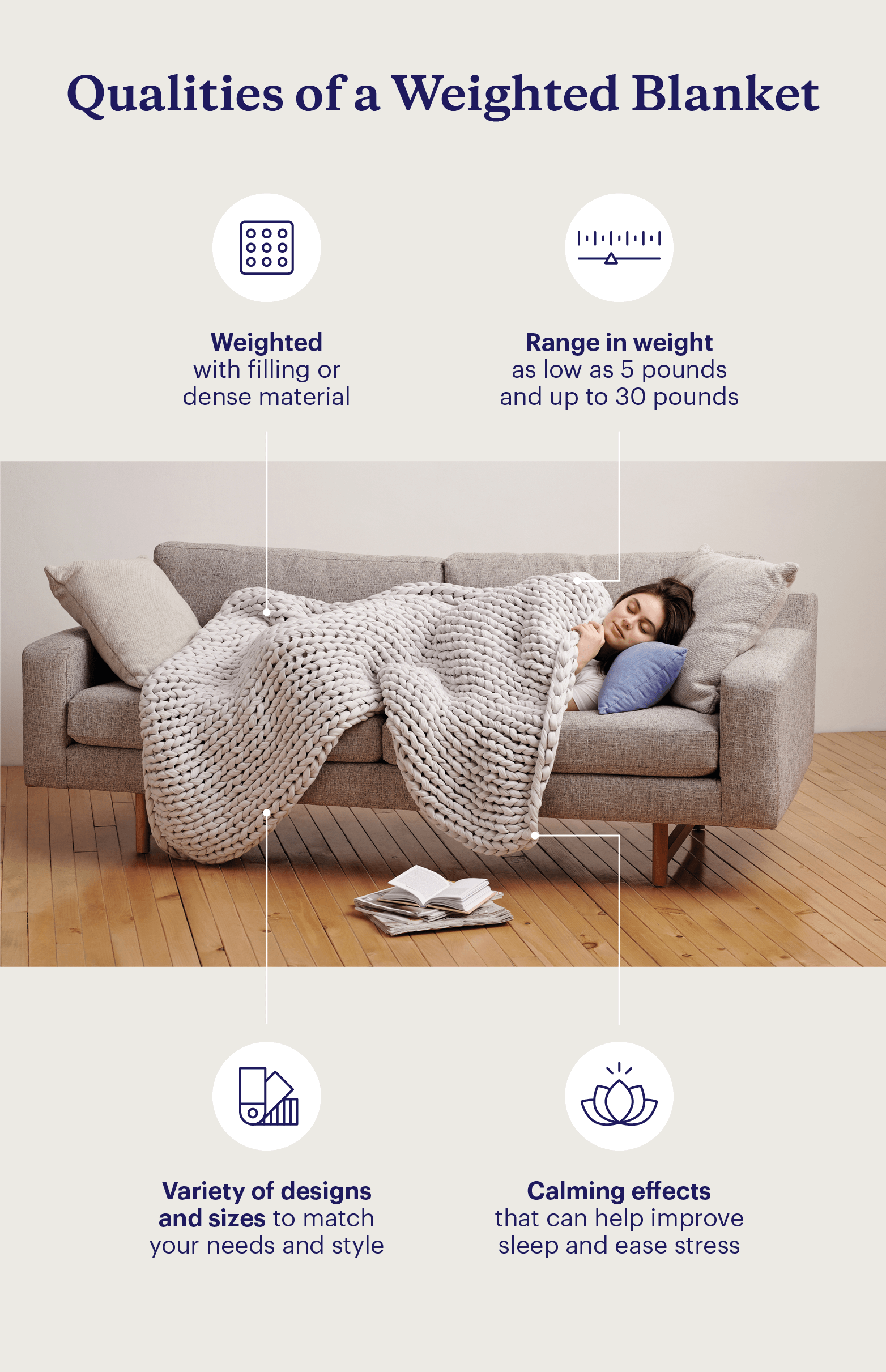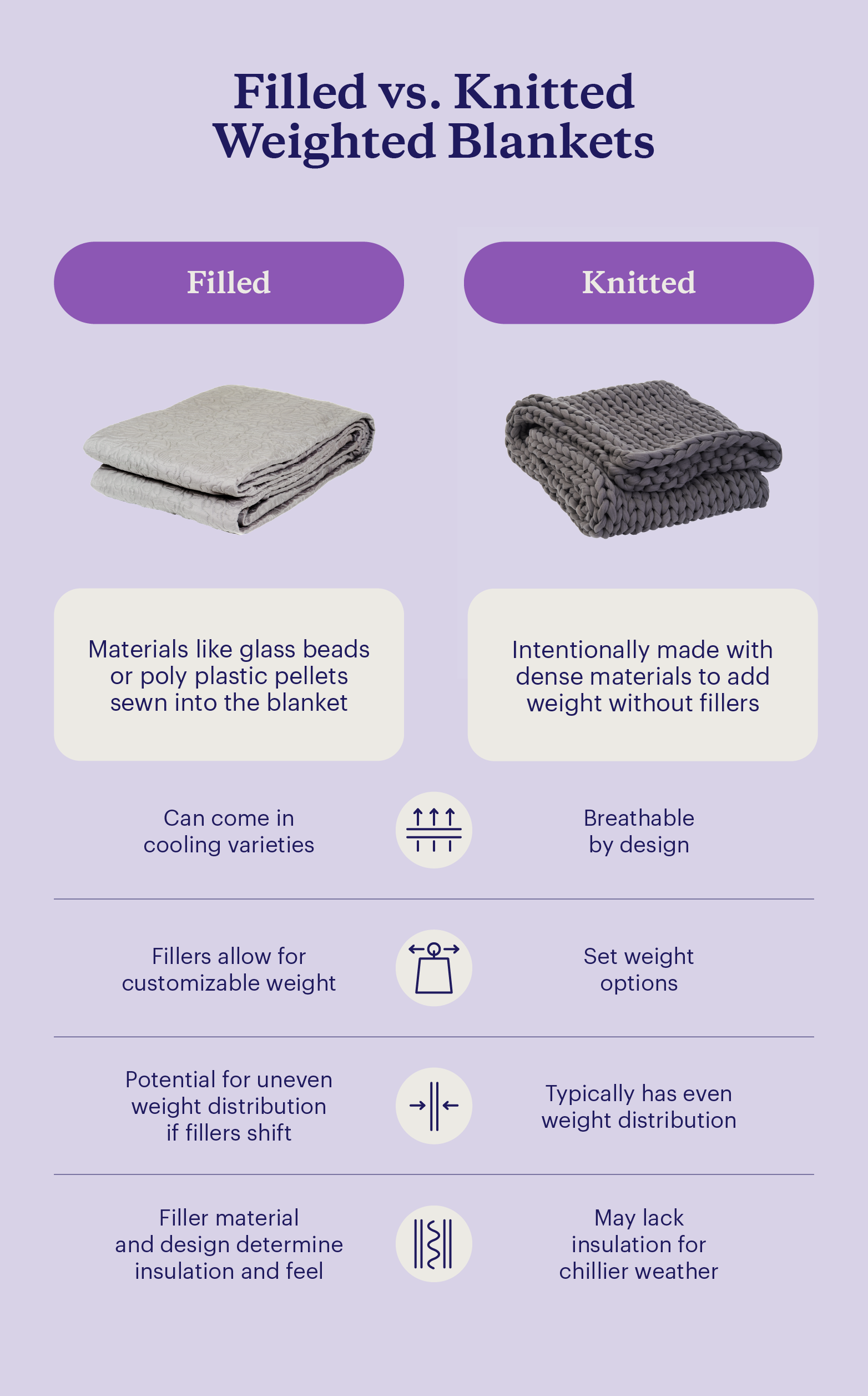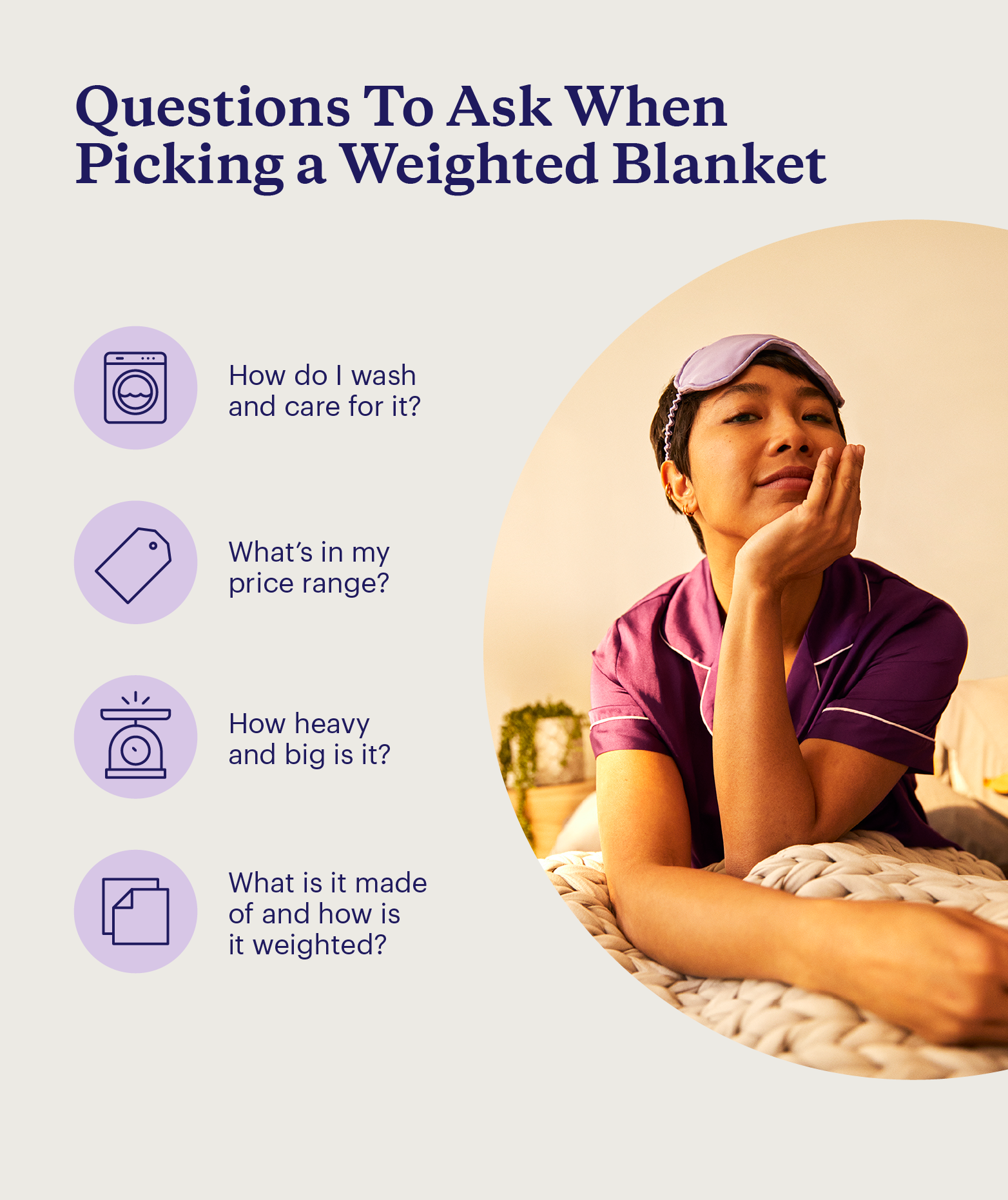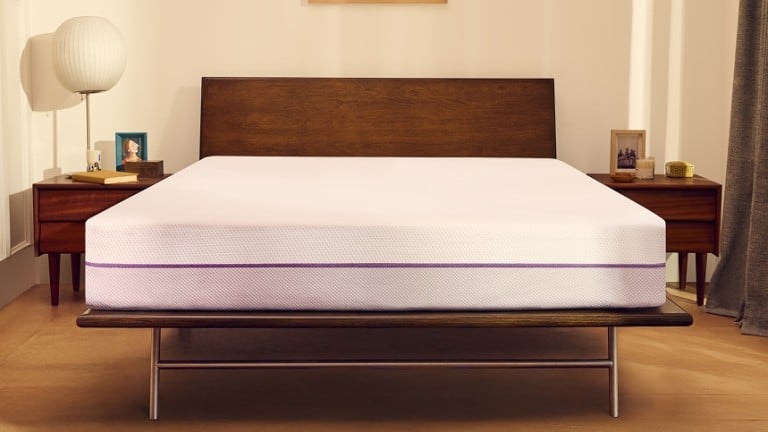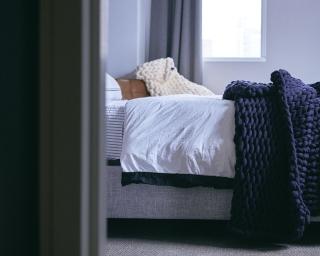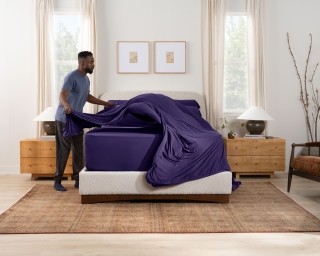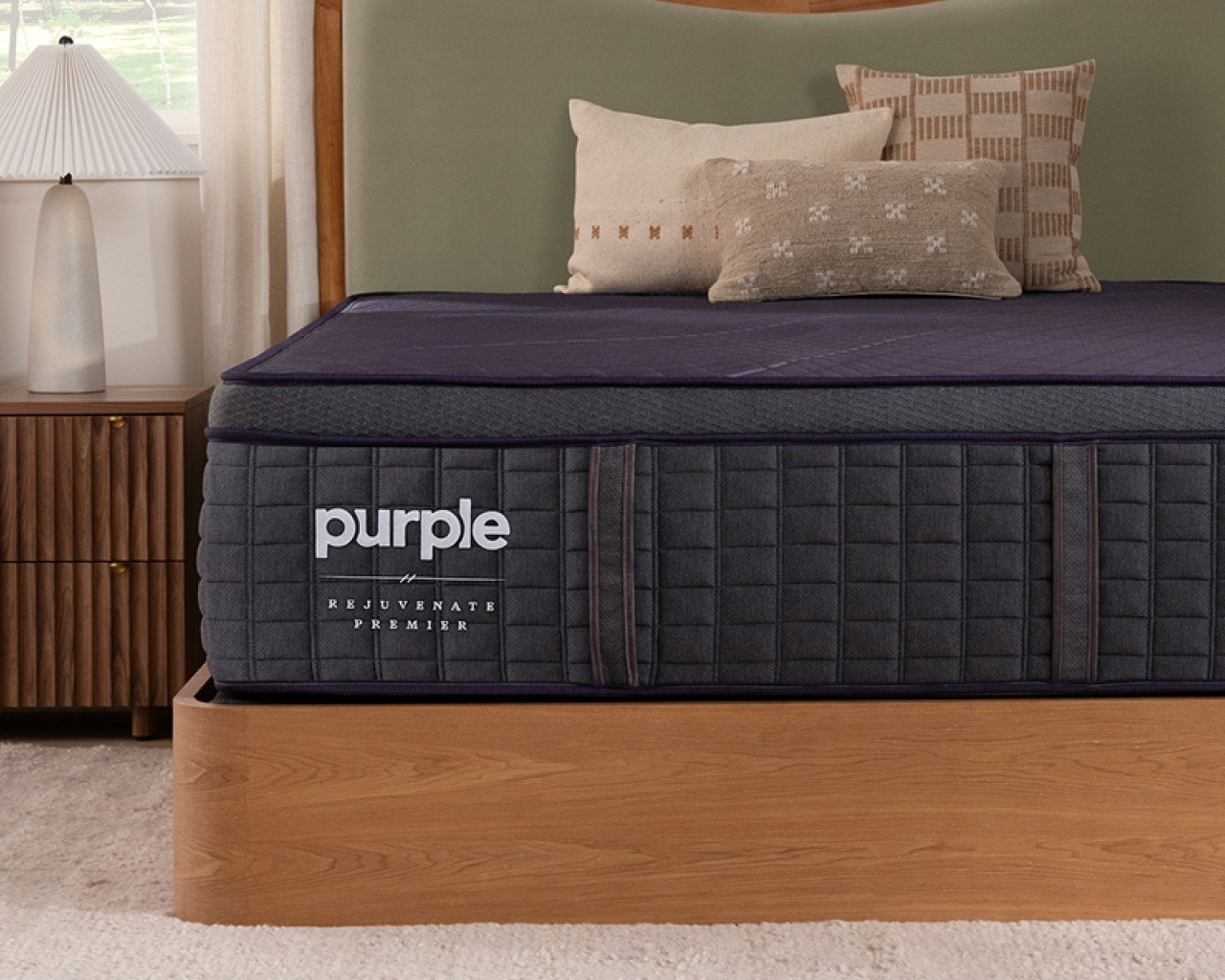
12 Weighted Blanket Benefits for Better Health
Key Takeaways:
- The Journal of Clinical Sleep Medicine published a study that found weighted blankets reduced insomnia in study subjects, among other improvements, after four weeks.
- Subjects said their daytime activity levels had increased and their anxiety had decreased.
- Subjects also reported lower daytime anxiety and depression after sleeping under a weighted blanket.
Struggling to quiet your mind while trying to fall asleep? We’ve all been there.
Tossing and turning when all you want to do is sleep can get, well, tiring. If you find yourself in this scenario regularly, we’re here to share with you a proven secret weapon: the weighted blanket.
Weighted blankets are utilized by a variety of sleepers who struggle to fall asleep at night. Beyond that, a study in the Journal of Integrative Medicine found that psychiatric patients who used weighted blankets had less anxiety.
In this article, we discuss the magic behind the fan-favorite sleep tool and share how to implement a weighted blanket in your sleep routine.
What Is a Weighted Blanket?
A weighted blanket is a heavier type of blanket that promotes relaxation and enhanced comfort. Weighted blankets utilize fillers or different types of materials to provide the heaviness that induces sleep-improving benefits.
Weighted blankets can be filled with materials like glass beads, poly plastic pellets, and steel shot beads that get sewn into the blanket. In contrast, other weighted blankets are made with denser materials that create the heaviness, such as woven blankets.
How Do Weighted Blankets Work?
Weighted blankets deliver comfort and relaxation through deep pressure stimulation (sometimes called deep touch therapy or deep pressure touch). Not coincidentally, this type of pressure is similar to the comfort you’d feel after getting a hug from your best friend.
There’s a scientific reason why gentle pressure from a blanket or hug makes you feel good. Dr. Adam Perlman, Director of Integrative Health and Wellbeing at Mayo Clinic Florida, said that the feeling is a result of your body's physiological response, meaning a drop in cortisol (the “stress” hormone) and an increase in serotonin and dopamine (two “feel-good” hormones).
12 Benefits of a Weighted Blanket
Stress less and concentrate more — who wouldn't love that combination every day? Weighted blanket benefits range from stress relief to sleep improvement and even pain relief.
1. Reduces Stress and Anxiety
Trying to fall asleep with an anxious mind can feel like yet another to-do to check off your list. Weighted blankets can add the pressure (in a good way) to help you unwind during moments like these.
As mentioned above, the deep pressure stimulation (DPS) from weighted blankets can help ease stress. A study published in the American Journal of Occupational Therapy found that self-administered deep pressure touch helped those with self-reported anxiety feel more relaxed.
Another study from Occupational Therapy in Mental Health found that 63% of participants reported lower anxiety after using a 30-pound weighted blanket.
2. Increases Melatonin Production
Relaxing is one thing; falling asleep is another. A weighted blanket not only relieves stress but can also help lull you to sleep.
A Journal of Sleep Research study found that melatonin levels at bedtime increased in participants who used a weighted blanket, suggesting that the pressure from the blanket led to that increase.
3. Offers Pain Relief
Those who live with chronic pain can potentially find relief with weighted blankets. A study published in The Journal of Pain found that those with chronic pain had a lower perception of their pain and felt that their pain had less interference in their life when using a weighted blanket.
4. Reduces Insomnia and Improves Sleep Disorders
Using a weighted blanket is one of the many ways you can sleep better at night, especially if you’re dealing with insomnia. A study from the Journal of Clinical Sleep Medicine analyzed subjects with insomnia and psychiatric disorders, like generalized anxiety disorder and ADHD.
The study found that those who slept with weighted chain blankets were able to stay asleep longer, experience less daytime symptoms of depression, anxiety, and fatigue, and accomplish more activity during the day.
5. Lessens Tossing and Turning
It’s happened to the best of us. After a long day, we toss and turn and can’t seem to fall asleep regardless of how tired we feel. Tossing and turning at night can be a result of factors related to diet, hormones, and stress, to name only a few.
A study published in the Journal of Sleep Medicine and Disorders found that participants moved less when using a weighted blanket. Study participants also found it easier to relax before bed and get better sleep.
6. Alleviates Restless Legs Syndrome
People with restless legs syndrome (RLS) have a strong urge to move their legs, typically in the late afternoon and at night.
One study published in The Cureus Journal of Medical Science looked at the effects of weighted blanket therapy for a patient with periodic limb movement disorder (PLMD) who experienced trouble with fatigue and sleep. According to the study, PLMD is associated with RLS.
The study found that using a weighted blanket, along with several lifestyle changes, helped improve the participant’s mood and quality of sleep.
7. Improves Temperature Regulation
For all hot sleepers out there, consider finding a breathable (or even a cooling) weighted blanket.
Knitted weighted blankets are naturally more breathable compared to blankets filled with weights. However, filled weighted blankets can still be breathable depending on the material used (like cotton) and fillers used (like glass beads).
Keeping yourself from overheating will help you achieve a better night’s sleep. One study published in the Journal of Physiological Anthropology found that heat exposure increased wakefulness and made it difficult to achieve deep sleep.
8. Contributes to Better Sleep for Seniors
Our sleep patterns can change as we get older. Sleep for older adults can become a challenge with medications, health conditions, and other natural changes that come with age.
In a study published in Geriatrics focused on older adults living in nursing homes, researchers found that those who slept with weighted blankets had an easier time falling asleep and woke up less in the middle of the night.
9. Helps ADHD Symptoms in Children
Children with ADHD may experience a difficult time sleeping, requiring extra support. This can also lead to sleep issues for parents.
A study published in Occupational Therapy International found that children with ADHD who were experiencing sleep difficulties were able to feel calm and safe and sleep better when using a fiber-weighted blanket. Some participants also reported having more energy and alertness during the day. Before using a weighted blanket, the study suggests the importance of considering a child’s individual needs first and foremost.
10. Assists With Alleviating Post-Traumatic Stress Disorder
Post-traumatic stress disorder (PTSD) can surface after a stressful, shocking, or traumatic event. It can last for years and lead to difficulties sleeping, concentrating, and memory, along with other symptoms. Using a weighted blanket can potentially help alleviate PTSD symptoms.
A study published in the Nordic Journal of Psychiatry tested to see if diagnoses of substance use disorder (SUD) and subscriptions of common sleep medication would be altered with the use of a weighted blanket. Participants included patients with psychiatric diagnoses, including PTSD.
The study looked at the impact of weighted blankets a year after participants started using them, at which time, it was found that there was a decrease in the proportion of prescribed medication for participants with PTSD, ADHD, anxiety, and unipolar depression.
11. Supports Autism Treatment
Autism spectrum disorder (ASD) is a condition that can come with a variety of challenges, including sensory processing issues (such as being sensitive to bright lights) and difficulty communicating.
A study published in Pediatrics evaluated how weighted blankets affected sleep for children with ASD and severe sleep issues. Although this particular study didn’t see significant improvements in sleep with the parameters measured, both parents and children preferred using weighted blankets.
Parents were also more likely to say that their kids were calmer and had better sleep when using weighted blankets. The researchers assumed this observation could be for a number of reasons, including a perception of improved bedtime behavior or qualitative changes that researchers did not capture.
12. Fosters Comfort for Sensory Processing Disorder
Sensory processing disorder occurs when the brain has trouble sending and receiving messages about their senses. This can lead to heightened sensitivity correlated to the surrounding environment, such as clothes feeling overly itchy or lights appearing too bright. Those with ASD can also have sensory processing issues.
A study published in Children looked at the impact of weighted blankets for young kids with sleep difficulties, ASD, and sensory over-responsivity (when someone has a long or intense response to sensory stimuli, like loud sounds).
The study found that the two young children who participated in the study fell asleep faster than normal and were in a better mood when they woke up.
Benefits | Considerations |
| Promotes stress relief and better sleep and relieves pain | Care and traveling may be difficult depending on the material |
| Comes in a variety of size, weight, and design options | May not be suitable for young children and those with certain conditions |
How To Choose the Best Weighted Blanket for You
Weighted blankets come in a variety of styles, weights, and designs, including traditional weighted blankets with fillers and soothing knitted varieties like our Bearaby® Weighted Blanket.
Here are the main qualities to consider when narrowing down your ideal weighted blanket:
- Weight: Weights can range between 5 and 30 pounds.
- Size: Weighted blankets can be as small as lap blankets and as large as a king-sized blankets.
- Material: You can find weighted blankets made from materials like cotton, velvet, fleece, Lyocell, and polyester. Some blankets have a removable washable cover.
- Fillers or no fillers: Materials specifically used for weighting can range from glass beads to plastic poly pellets. Other blankets are designed to be heavy without the need for fillers.
- Wash and care instructions: Some blankets are machine-washable, while others are spot clean-only depending on the material. Heavier blankets may take extra time to dry.
- Price range: Weighted blanket prices can range from $35 to $350 depending on all of the above qualities.
FAQ
When determining whether a weighted blanket is right for you, consider these common questions below. Be sure to consult your doctor for specific questions regarding your safety or personal health conditions.
Is It Safe To Use a Weighted Blanket Every Night?
Weighted blankets are generally safe to use nightly if you’re able to safely move beneath them and don’t have certain conditions (specified in the next question).
Be sure to utilize the return period to test if a weighted blanket is right for you. Try lying beneath it, taking short naps, and analyzing your comfort levels. If there are no red flags, start to incrementally test its use for longer periods.
Who Should Avoid Weighted Blankets?
Very young children under the age of 2 and those with certain conditions should consider avoiding weighted blankets.
Children may suffocate or otherwise have difficulty moving under heavy blankets. Fillers can also become choking hazards if they fall out.
Weighted blankets may also not be a safe choice for people with circulatory issues (like low blood pressure) or breathing issues (like sleep apnea). Did you know? It can take a single red blood cell around 20 seconds to travel throughout your body, but factors like certain medications, external pressure, and stress can affect blood flow.
Can You Wash a Weighted Blanket?
You can wash a weighted blanket, but the method will depend on your blanket’s care instructions and the material. You may be able to machine wash the entire thing, only the cover, or spot clean only.
How Heavy Should a Weighted Blanket Be?
The general recommendation is to get a weighted blanket that’s about 10% of your body weight. Ultimately, the weight of a weighted blanket depends on how much pressure you’re comfortable with and if you can move safely underneath it.
What Weighted Blanket Should I Get?
The right weighted blanket for you will deliver the right amount of pressure that soothes you to sleep. It’s also important to consider the material and size you’ll find most comfortable.
More to Explore
Level-up your sleep routine with our most-loved products.


